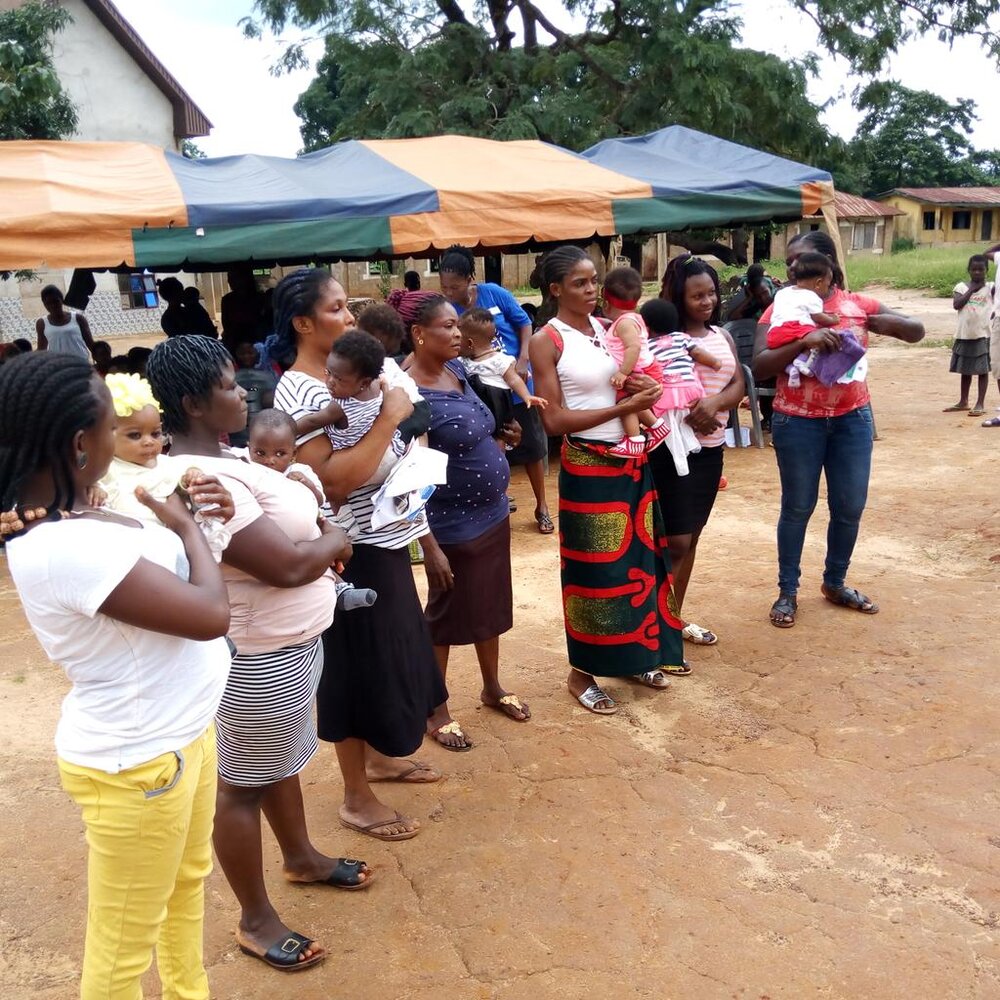Guest Blog by Somto Ugwu, Global Ambassador for Rockflower
Akwuke is a rural community in Enugu State, Nigeria. Akwuke, similar to most rural communities in Nigeria, lacks various basic amenities, like road infrastructure, reliable power, and potable water supplies. Another major challenge, comparable to other rural communities, is female genital mutilation (FGM). This is because of the various patriarchal mindsets, which hold power in the community. There are also various myths and misconceptions surrounding FGM, such as FGM curbing promiscuity in the girl child.
I currently serve as the Gender Head for the Society for the Improvement of Rural People (SIRP), which is an organization committed to ending FGM across communities in Nigeria. In late 2018, we decided to undertake a project entitled Keeping Women and Girls in School through an End FGM Campaign in the Akwuke community. This project was graciously supported by Rockflower.
Before we started this project, the FGM prevalence rate in the Akwuke community was estimated to be between 81-85%, one of the highest amongst communities in the Enugu state of Nigeria. Having studied this community, we came to discover that the only approach, which would be effective, efficient and sustainable is an approach that is both community-based and community-centered. We, therefore, decided to adopt the 6 UNICEF elements for FGM abandonment. This approach involved more listening and examining rather than instructing and allowed community members to take the lead themselves in making decisions as to whether or not to end FGM.
In the course of this project, we held various dialogue sessions with key stakeholders who are influential in the community, including traditional and religious leaders, clan leaders, women’s groups, men’s groups, teachers and youth groups. Through the series of discussions that ensued, it was evident that FGM was highly entrenched in the community. Many members believed that FGM was beneficial for the girl child and should be continued.
In our interactions with community members, we asked them if they saw a difference between girls that experienced FGM and those that didn’t. Whenever this question was asked, members of the community tended to be unable to answer it. Thus, this became our entry point into the community’s beliefs of FGM. They began to see that the lack of difference in girls who were mutilated and those that were not and questioned the need to continue FGM. Additionally, we informed the community about the negative effects of FGM on the girl child in Akwuke, which includes effects on her health, education and economic life.
Currently, things are improving in the community as more and more families are preventing their girl children from being mutilated. This has reduced the FGM prevalence rate of the community by 30%. And, there has been a 35% increase in FGM education. We have noticed a possible correlation with educational results as an increase of 40% in the girl child school enrolment and retention has occurred. These impressive results were made possible through the use of dialogue sessions and various awareness-raising activities in the community, such as soccer tournaments, music shows, and poster campaigns.
I recently had a discussion with Cordelia Udeh an FGM survivor at the community, who confessed to me that before our intervention she wanted to mutilate her girl child. She said she had already started making plans for it by securing the services of a traditional birth attendant (TBA) who performs the cuttings. She believed that she was doing the best thing for her girl child at that time and was unaware of the negative effects. She thanked our organization and Rockflower tremendously for bringing this project to her community.
This past month, we organized a naming ceremony for several families who have agreed not to mutilate their girl children. This serves as a public declaration against FGM. The traditional ruler of Akwuke formally made a pronouncement that FGM is hereby ended in Akwuke marking a great achievement in our fight to end FGM.



